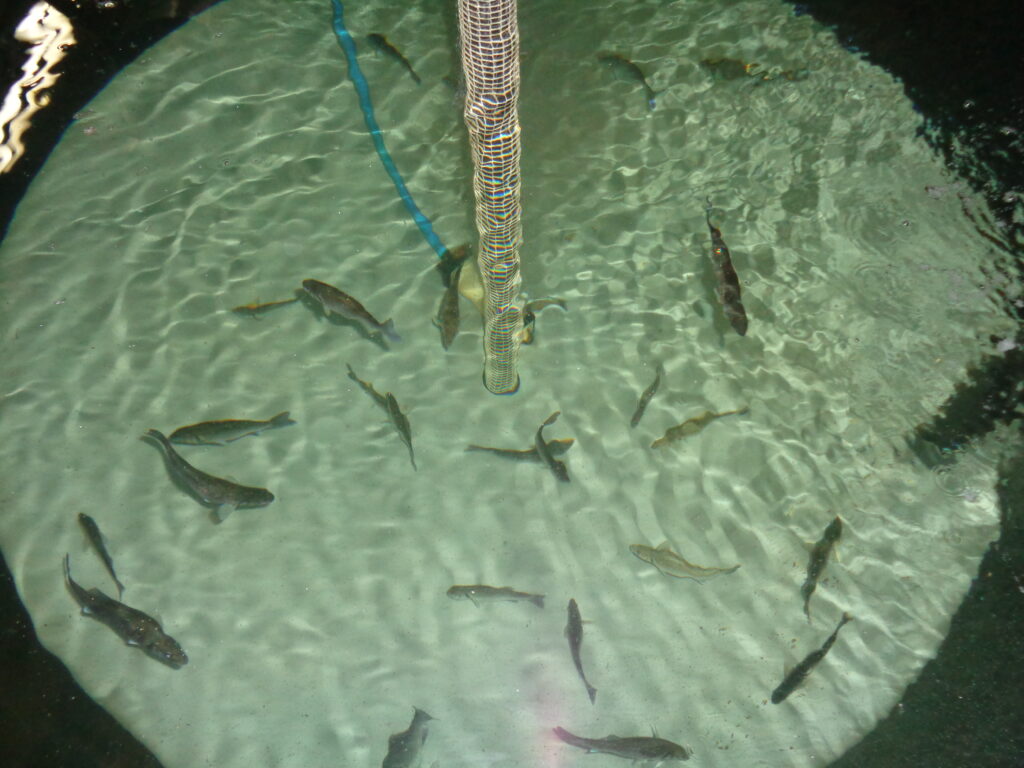
News & Views
Hatchery Operations
Research
French study finds advantages in lowering incubation temp in European seabass eggs
July 21, 2023 By Ruby Gonzalez
 France study finds advantages in using lower incubation temperature in European seabass eggs (Photo: Deborah Power, University of Algarve)
France study finds advantages in using lower incubation temperature in European seabass eggs (Photo: Deborah Power, University of Algarve) European seabass eggs incubated at 11 °C until hatching produced juveniles that exhibited less changes following the fast-refeed regime.
This was demonstrated in experiments ran in the experimental facilities of IFREMER IRD, INRAE facilities in Palavas-Les-Flots in France.
“Food deprivation did not significantly modify the morphology of the foregut and the liver parenchyma recovered sooner in fish from the 11 °C egg thermal regime compared to fish from the other thermal regimes following refeeding,” cited Ana Patrícia Mateus et al.

Dr. Deborah Power (right) and her research team (Photo: Deborah Power, University of Algarve)
Their study, “The impact of egg thermal regimes on the response to food deprivation and refeeding in juvenile European Seabass (Dicentrarchus labrax)” was published on Aquaculture.
“The first message coming from the study is that eggs/embryos should be rapidly harvested from broodstock tanks into an incubator with a controlled and desired water temperature,” Dr. Deborah Power, corresponding author, told Hatchery International. Power is a professor at the University of Algarve in Portugal.
She suggested that the usual industry protocol of using 13.5ºC “should be reconsidered by different hatcheries and they should consider not only immediate quality criteria but also juvenile quality.”
Stressing the importance of time and temperature, she said, “The fertilized eggs/embryos should be collected as soon as possible from broodstock tanks into a constant thermal regime to ensure constant thermal conditions during embryo development to minimize one of the factors causing variability between production lots.”
Eggs were incubated at 11, 13.5 and 16°C until hatching. Afterwards, these were reared at a common temperature until nine months, when fish were deprived of food for one week.
Fasting and refeeding challenge was done during the research to assess if the egg thermal regime influenced the response in late juveniles. Power explained the team wanted to select a challenge that normally happens in aquaculture. Food deprivation occurs pre-harvest, during an equipment malfunction or when feeding levels are inappropriate for fish mass versus water temperature.
Print this page





